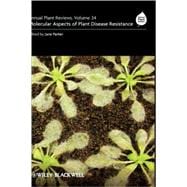
What is included with this book?
| List of contributors | p. x |
| Preface | p. xiii |
| A personal perspective of the last 40 years of plant pathology: emerging themes, paradigm shifts and future promise | p. 1 |
| Introduction | p. 2 |
| The hypersensitive response | p. 2 |
| The gene-for-gene hypothesis | p. 5 |
| Host versus non-host resistance | p. 7 |
| Future promise | p. 8 |
| Pathogen-associated molecular patterns (PAMP) and PAMP-triggered immunity | p. 16 |
| The concept of plant immunity | p. 16 |
| Pathogen-associated molecular patterns | p. 19 |
| Damage-associated molecular patterns | p. 24 |
| Pathogen-derived toxins | p. 25 |
| PRRs in plant immunity | p. 28 |
| Intracellular signal transduction in PTI | p. 32 |
| Suppression of PTI by bacterial effectors | p. 36 |
| Concluding remarks | p. 37 |
| Pseudomonas syringae type III-secreted proteins and their activities and effects on plant innate immunity | p. 48 |
| Introduction | p. 49 |
| P. syringae type III-secreted helper proteins | p. 51 |
| The plant innate immune system | p. 53 |
| Enzymatic activities and plant targets of P. syringae type III effectors | p. 58 |
| Influence of type III effectors on plant hormones | p. 65 |
| Concluding remarks | p. 66 |
| Fungal and oomycete biotrophy | p. 77 |
| Introduction | p. 77 |
| Penetration and establishment of infection structures | p. 78 |
| Dealing with plant defence responses | p. 83 |
| Contribution of the host to infection | p. 87 |
| Acquiring nutrients from the host | p. 89 |
| Outlook | p. 94 |
| Genome biology cracks enigmas of oomycete plant pathogens | p. 102 |
| Introduction | p. 103 |
| Biology and pathology of oomycetes | p. 103 |
| Genomic resources | p. 109 |
| The impact of genomics on gene discovery | p. 112 |
| The secretome | p. 117 |
| Future perspectives | p. 125 |
| Plant-virus interactions: defence and counter-defence | p. 134 |
| The unique challenge posed by viruses to plants | p. 134 |
| Virus infection and propagation through susceptible host plants | p. 135 |
| 'Classical' or genetically predetermined resistance | p. 137 |
| RNA silencing | p. 144 |
| Viral suppressors of RNA silencing | p. 152 |
| Concluding remarks | p. 160 |
| Marshalling the troops: intracellular dynamics in plant pathogen defense | p. 177 |
| Introduction | p. 178 |
| The front line - exocytosis, endocytosis and vesicle transport | p. 180 |
| At headquarters - nucleocytoplasmic trafficking in plant immunity | p. 190 |
| Conclusions | p. 206 |
| Role of plant secondary metabolites at the host-pathogen interface | p. 220 |
| Introduction | p. 220 |
| Classification of defence-related plant secondary metabolites | p. 221 |
| Biological activity of plant secondary metabolites | p. 229 |
| Dynamic induction and targeting of secondary metabolites to the pathogen interface | p. 234 |
| Genetic approaches to validate defensive functions of plant secondary metabolites | p. 241 |
| Successful pathogens | p. 247 |
| Concluding remarks | p. 250 |
| Chemical ecology of plant-insect interactions | p. 261 |
| Introduction | p. 262 |
| Recognition and signalling | p. 262 |
| Defence strategies | p. 271 |
| The cost of defence to plants | p. 277 |
| Airborne communication | p. 278 |
| Priming and manipulations to enhance pest resistance | p. 280 |
| Lipid signals in plant-pathogen interactions | p. 292 |
| Introduction | p. 292 |
| Epidermal surface lipids influence plant-pathogen interactions | p. 293 |
| Elicitation of plant defenses by microbial lipids | p. 294 |
| Lipid modification of defense signaling components and pathogen-derived elicitors | p. 296 |
| Signaling function of plant lipids and lipid-derived factors | p. 298 |
| Lipases in plant-pathogen interaction | p. 312 |
| Lipid-transfer proteins in plant-pathogen interaction | p. 316 |
| Concluding remarks | p. 318 |
| Induced resistance - orchestrating defence mechanisms through crosstalk and priming | p. 334 |
| Introduction | p. 335 |
| Induced resistance signalling | p. 338 |
| Crosstalk between defence signalling pathways | p. 348 |
| Priming for enhanced defence | p. 354 |
| Concluding remarks | p. 358 |
| Index | p. 371 |
| Table of Contents provided by Ingram. All Rights Reserved. |
The New copy of this book will include any supplemental materials advertised. Please check the title of the book to determine if it should include any access cards, study guides, lab manuals, CDs, etc.
The Used, Rental and eBook copies of this book are not guaranteed to include any supplemental materials. Typically, only the book itself is included. This is true even if the title states it includes any access cards, study guides, lab manuals, CDs, etc.